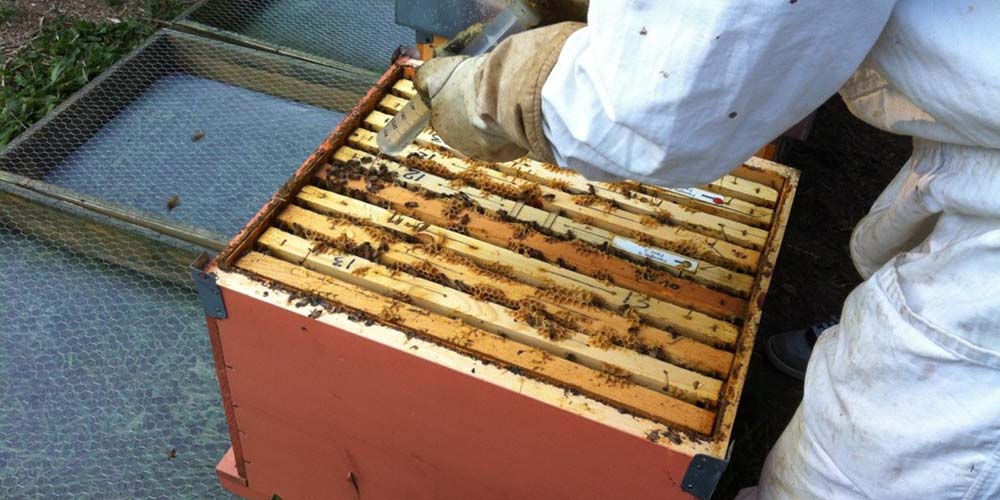I may sound like a broken record, but knowing varroa will definitely help you to lose less colonies. . The mite is still the greatest threat for honey bee health worldwide. Now, only Antarctica is free of varroa – so the only continent where beekeeping is impossible. Australia considers varroa mites established in New South Wales. Though apparently it still didn’t spread to other parts of the country, this created quite a fuzz in the beekeeping world.
Which definitely means that strategies for dealing with varroa mites are necessary. These strategies may not all look the same. In different parts of the world, the timing, frequency, or best products may be different. However, they should have one thing in common: varroa and honey bee biology as a foundation.
Better bee health by better practices
The biology of varroa mites is one of my most requested talks. I’ve changed it over the years to show how much some basic varroa knowledge relates to everyday beekeeping practice. And I’m still working on it. I don’t think I ever gave the same talk twice. I learn from the questions I get or find different words to explain the same thing.
However, that I’m still talking about varroa and how to deal with it shows that it’s still needed. Sometimes I notice that the beekeepers I have in front of me hope for a simple, one-and-for-all solution. Which, I’m afraid, doesn’t exist. This is why I told you about the Red Queen last time. Whatever what strategy you apply – treatments, breeding, or a combination of both – it will always need a little effort.
And here’s where the knowing varroa part comes in: If you know how to do things, it becomes easier. Less of a hassle, just something you do. And if you know the foundation, it even gets easier to adapt to changing conditions.
Some advantages of knowing varroa
As I said above, all concepts to manage varroa that make sense rely on the biology of both host (honey bees) and parasite (varroa mite). Most beekeepers already know the basics of their colonies’ biology. If not, we need to talk about some other things before approaching varroa. But the parasites biology and its relationship to the host, that’s still widely unknown between beekeepers. For instance, the recommended treatment schedules rely on the infestation development in the colony.
You want healthy winter bees, so you treat in late summer when the colonies begin to rear them. By this, winter bees grow up without being parasitized and damaged. You also want productive colonies during the season. So, you treat in winter to knock down as many mites as possible to make them start with low infestation. For understanding the latter, it may help to know that varroa infestation doubles every month when there’s brood. Why only when there’s brood? Because the mites reproduce only in sealed brood cells.
You see? The treatment schemes rely on the parasite’s biology and its relationship with the colonies. When you know the basics, you can adapt the scheme even if you don’t live in temperate climate and wonder what winter bees even are. It also helps to take a look into the original relationship – so, what happens in Apis cerana colonies. Varroa mites didn’t appear spontaneously, they came from somewhere. Knowing these things makes you stronger, it helps to feel more in control, less of a victim of circumstances.
Knowing good from bad
There’s another reason why knowledge may be especially important at the moment: The world around treatments is moving. There may be some new developments coming up. After being restricted to a few substances, there are some new ones in the pipeline that look promising. I can’t tell you more at the moment, but will as soon as this translates into actual products.
The knowledge I’m talking about here will also help you to distinguish between the serious products, those which really could work, from those which don’t. So, also knowing varroa treatments and their details will help you to keep your colonies healthy and save money. Knowledge is a shield against scam and misinformation. It makes you stronger. I’ve said this before and I will say it again: The best beekeepers are those who always continue to learn. And that’s why I talk about this so much. Because I care about bee health.
To finish this on a more positive note that may also contrast the effort of learning: Sometimes it just makes you stumble about something beautiful or new. Which is, by itself, a good thing that makes your life better.



